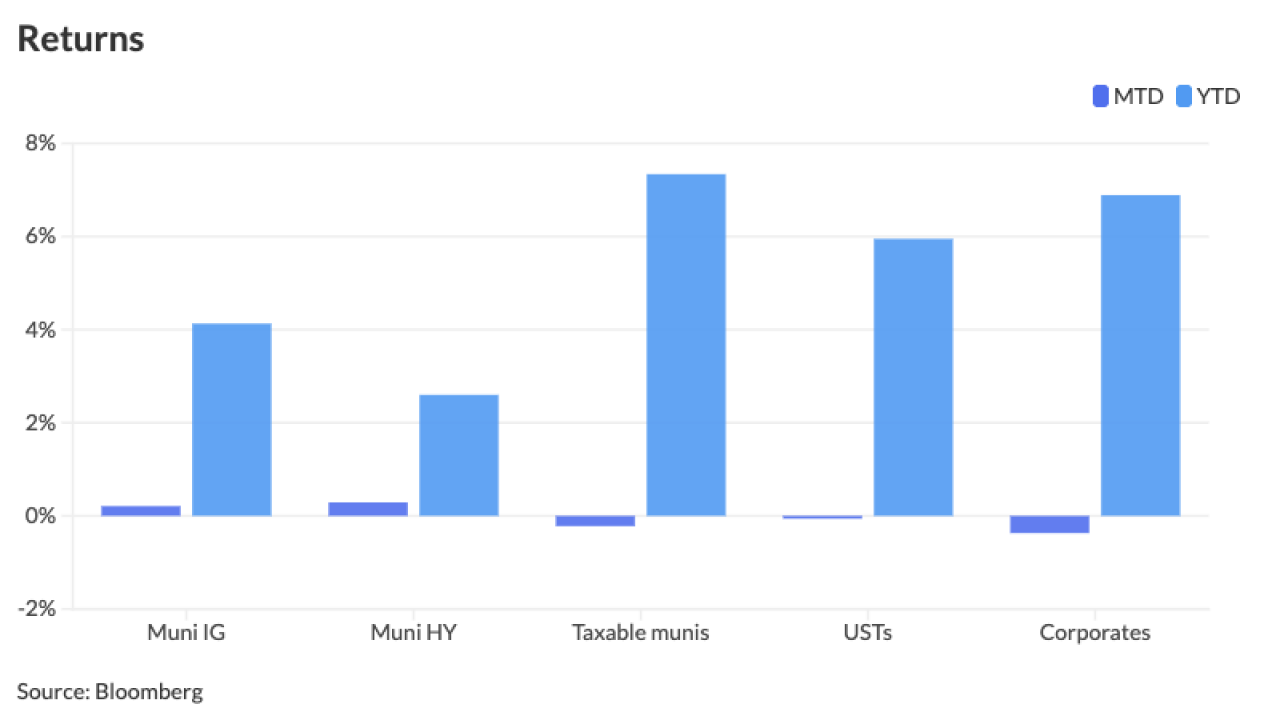States have moved beyond the recession-driven liquidity crisis but there are sources of ongoing weaknesses, such as unfunded pensions, that make states unable to rely on economic growth alone to mitigate risks of default and future structural budget stability, Morgan Stanley concludes in a report.
The 15-page report, “States of Purgatory,” warns while “default risk remains minimal, this still makes states more sensitive to the economic cycle, whereas the historical norm has been non-cyclical.”
Morgan Stanley said there is room for improvement before states return to the “ironclad, non-cyclical status they enjoyed pre-crisis.”
State credit quality has improved significantly since the depths of the recession in 2009, but the sector remains weaker than pre-crisis norms, the firm said. Still, Morgan Stanley does not expect fundamental deterioration in state credit this year.
Overall U.S. economic growth has contributed to state credit health including higher incomes and lower unemployment rates, which allows states to raise taxes and position themselves to better deal with expenditure demands, the report said.
One action that could lead states out of a “kind of purgatory” is congressional passage of the online sales tax Marketplace Fairness Act, which the firm estimates would raise revenues sufficient enough to reduce structural budget gaps by 33%. The bill, which passed the Senate on May 6 but faces opposition in the House, could generate $18 billion in excess sales/use tax revenues for states, the report said. This would be substantial relative to the estimated 50 states’ budget gap for fiscal year 2013 of $53 billion.
Another is the new Governmental Accounting Board Standards Board pension and reporting standards that could be a catalyst for legislatures to improve pension funding, Morgan Stanley said. GASB’s standards, approved last June, require states to increase disclosure of pension liabilities, but are not set to take full effect until fiscal year 2015. The two most significant changes include calculating the present value of pension liabilities and reporting net pension liabilities on a balance sheet.
Morgan Stanley views the accounting changes as “credit positive” but are cautious on how state policymakers will react to a likely increase in unfunded pension liabilities, the report said.
The unfunded portion of pension liabilities represents future claims on budget resources, similar to debt, Morgan Stanley said. As these liabilities continue to grow, so does the need to raise revenue to meet the obligations.
“This reduces a state’s financial flexibility to meet other public-purpose obligations and forces policymakers to make difficult choices that pit the needs of constituents, pensioners and creditors against one another,” the report said.
If states underfund pension obligations in favor of current spending obligations it will increase their long-term liabilities and Morgan Stanley is concerned that this could further strain meeting creditor obligations.
“While funding should improve as pension asset prices rise with risk markets on the back of an improving economy, we do not believe that asset prices can be counted on to grow consistently at a pace that meets or exceeds the assumptions baked into most pension plans,” the report said.





